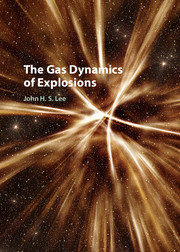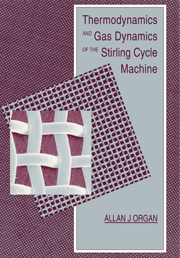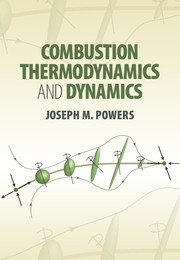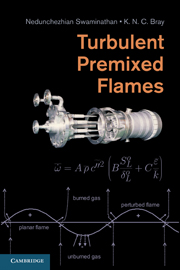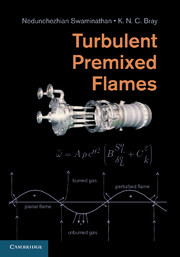The Gas Dynamics of Explosions
Explosions, and the non-steady shock propagation associated with them, continue to interest researchers working in different fields of physics and engineering (such as astrophysics and fusion). Based on the author's course in shock dynamics, this book describes the various analytical methods developed to determine non-steady shock propagation. These methods offer a simple alternative to the direct numerical integration of the Euler equations and offer a better insight into the physics of the problem. Professor Lee presents the subject systematically and in a style that is accessible to graduate students and researchers working in shock dynamics, combustion, high-speed aerodynamics, propulsion and related topics.
- Offers a logical and systematic progression through the material
- Accessible to those without a mechanical engineering background
- Appeals to a broad range of researchers working in the area of shock waves and explosions
Reviews & endorsements
The Gas Dynamics of Explosions is a unique and valuable collation and presentation of the analytical methods that have been used to calculate the physical properties of blast waves. This has been done with mathematical clarity, which in most cases is superior to that of the original publications. These analytical methods often provide an insight into the physical processes within a blast wave that is not provided by numerical simulation techniques that are nowadays most commonly used to study these processes. The text provides an excellent reference source for researchers studying blast waves and an excellent primer to those who are new to the field. It is a natural sequel to Professor Lee’s earlier work, The Detonation Phenomenon (Cambridge, 2013)' J. M. Dewey, Shock Waves
'The book itself is relatively short, 194 pages, and can be read through in a couple of hours. The text is clear, the meanings precise and the pace is relatively fast. … If, however, we look with greater attention, the text covers the fundamental gas dynamics in depth and gives fairly complete derivations of equations: this is not a book where space and effort is saved by the familiar phrase ‘it can be easily shown that’. Many of the derivations are given for 0D to 3D forms. This allows comparison between the complexity of derivation and the inclusion of many graphs allows easy comparison of the results of the added complexity. This is a key strength of this text. Overall, I would recommend this book to those who want to have a strong, mathematically analytical basis of this field.' W. G. Proud, The Aeronautical Journal
Product details
July 2016Hardback
9781107106307
216 pages
263 × 185 × 17 mm
0.59kg
55 b/w illus. 5 tables
Available
Table of Contents
- Preface
- 1. Basic equations
- 2. Weak shock theory
- 3. Shock propagation in a non-uniform cross sectional area tube
- 4. Blast wave theory
- 5. Homentropic explosions
- 6. Snow-plow approximation
- 7. The Brinkley–Kirkwood theory
- 8. Non-similar solutions for finite strength blast waves
- 9. Implosions
- Index.

